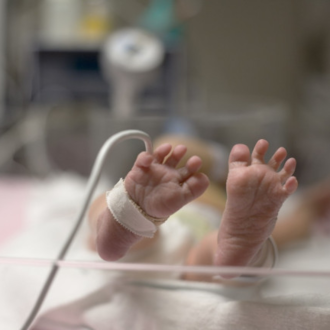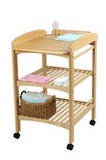Shop
01532
https://www.under5s.co.nz/shop/Hot+Topics+Articles/Parenting/6+Ways+to+support+parents+with+premature+babies.html
6 Ways to support parents with premature babies
|
If someone you know has recently had a premature baby there are lots of things you can do to help out and to make the parents' lives just that little bit easier during the first few weeks. From celebrating the birth, to buying gifts and cards, making meals and offering more practical help so that they can focus on their baby.
|
You might also be interested in ...
5 Great tips for doing a road trip with toddlers
Taking your toddler and doing a road trip around New Zealand might not be as daunting as you think, and is a great opportunity to enjoy new sights and explore new places as a family. Travelling with toddlers provides a perfect opportunity to strengthen family bonds as you are isolated in your own little world and can do all the crazy things you want to do!
Nappy Time Check List
Not all babies enjoy having their nappies changed! So to make life easier for both of you, be as organised as you can and have everything to hand. Use our Check List to help you!
join usJoin us on social media for all our latest news. |
sign upSign up and receive our latest newsletters. |
|







6 Ways to support parents with premature babies
1. Celebrate!
Despite all the worries associated with their early arrival, a prem baby is very special and very much loved. Celebrate the birth of the baby as you would if the baby was full term by sending a card, gift or flowers as you intended.
Don’t forget the baby shower! If you were planning to hold a baby shower for your friend, go ahead with your plans. A good time to hold it would be a week before the baby is due home from hospital.
2. Send a card
Send a card as soon as possible. Don’t wait until the baby comes home to send a card (although you could always send a 'welcome home' card then too).
If you buy a card, be sensitive and choose one without a picture of a full term baby on it.
Some people worry about sending a congratulations card because they are not sure if the baby will live. However most prem babies do survive, and in the awful circumstances where a baby does not come home, the parents will really treasure those first congratulations cards as it gives life to the memory of their little one.
3. Buy a gift
If you're not too sure what's appropriate, buy something that you might normally give a full-term baby as they will still need it when they get home.
Unfortunately there’s not usually a lot of room in the hospital nursery for more than a couple of personal items such as soft toys, so don’t be offended if the parents leave your gift at home.
If you’d like to buy a prem-sized outfit, try searching online or if you live in New Zealand find a store that sells 000000 and 00000 sized clothes.
Remember the clothes should be extremely easy to get into whilst the baby is still attached to a monitor. Also don’t buy anything with covered feet as the hospital environment is quite warm and the baby may also need a monitor attached to their foot.
If you’re unable to find prem-sized clothing, the baby will still need other clothes once they leave hospital so you could always buy something in a larger size for them to grow into.
Don’t forget the parents! A nice hand cream will be very welcome as they will be washing their hands many times at the hospital. Also although most people take photos on their mobile phones these days, a small photo album is a nice idea too.
The perfect gift for the whole family is a cooked meal! It will be a lifesaver and doesn’t have to be homemade. They would enjoy take-aways just as much as a homemade casserole..
4. Check before visiting
Don’t rush to visit your friends in hospital the first week after the baby is born without checking that they want visitors first.
They may be spending a lot of time in the NICU or special care nursery, where visitors other than parents are not really encouraged.
Let them know you are happy to meet up when they have time, even if it’s just for a coffee in the hospital cafe, or after they bring their baby home.
Don’t visit if you are unwell - even a common cold can make a premature baby critically ill, and if your friends catch a cold they will be unable to visit their precious little bundle in hospital.
5. Stay in touch after the first week
Do keep in touch with the new parents via phone, text messages or email, or via someone who is closer to them than you, so that they know you are there and thinking of them as the days or weeks go by. Let them know that you don’t always expect a reply.
Your friends may not have a lot of time to spend with you while their baby is in hospital, but it can be a lonely and stressful experience and they will really appreciate that you are thinking of them and have not been forgotten about after the first week has passed.
6. Offer practical help
Having a premature baby is emotionally and physically exhausting and also very time-consuming.
From having to leave the baby in hospital, to expressing milk every few hours, coping with a complete change in birth plans and commuting to see the baby every day, there’s no time for parents to just stay at home and recover.
However you can help the family by:
More premature baby articles to enjoy
Source: Early Buds - supporting kiwi parents of premature babies who spend time in NICU or SCBU.